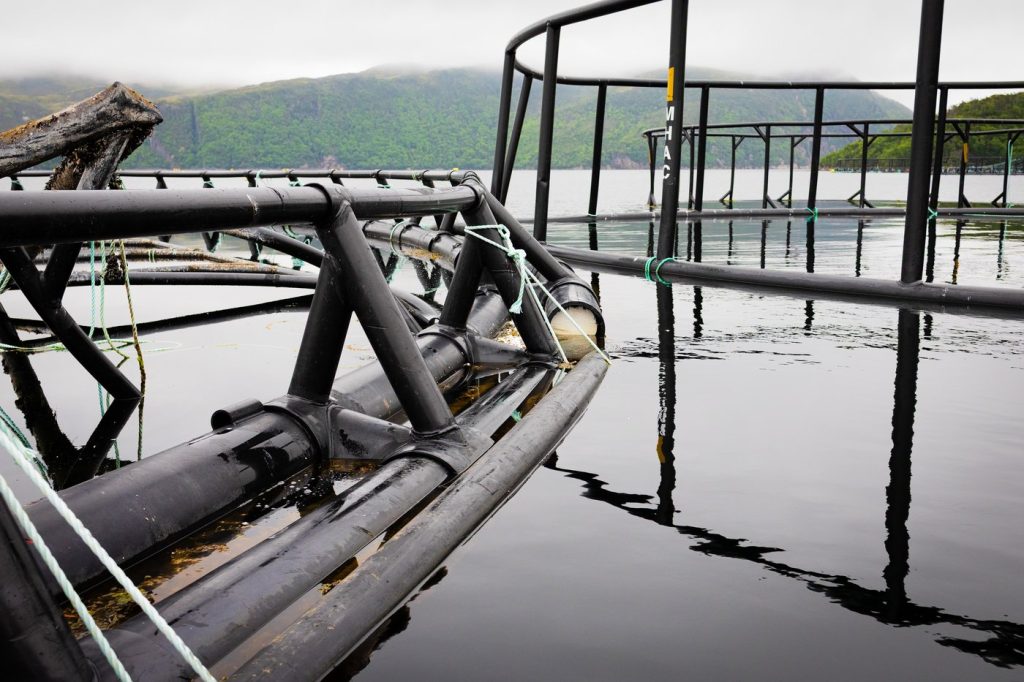ST. JOHN'S — An eastern Canadian conservation group is urging a moratorium on aquaculture expansion in Newfoundland and Labrador, claiming that fish-farming companies are improperly disposing of plastic waste along the province's remote southern shoreline.
The Atlantic Salmon Federation, based in New Brunswick, released a report summary on Tuesday stating that satellite images suggest aquaculture companies have left broken cages, ropes, and other debris at six locations along Newfoundland’s south coast. This concern has led the group to call on the federal fisheries minister to halt further aquaculture expansion in the province until these companies can manage their waste effectively.
Neville Crabbe, a spokesperson for the federation, emphasized the need for companies to address existing issues before seeking to expand their operations. "Fix your problems, utilize your existing sites, optimize what you have," Crabbe stated in an interview, adding that the industry should not expand further until current concerns are resolved. He highlighted that the aquaculture industry is not in a position to grow in Newfoundland and Labrador and should not pursue new locations until they have rectified their waste management practices.
The south coast of Newfoundland is characterized by its majestic fjords and small communities, many of which are accessible only by boat or plane. While the aquaculture sector provides significant employment in this region, the federation has been monitoring the waste generated by these operations for over a year. Crabbe clarified that they are not advocating for the closure of companies or a reduction in jobs but rather for better management of existing sites.
In collaboration with Planetixx, a U.K.-based climate data and analytics firm, the federation used over 60,000 satellite images spanning more than a decade to develop an artificial intelligence model capable of identifying sea cage structures used in salmon farming. This AI technology allowed the researchers to spot abnormalities, such as misshaped cages or disorganized arrangements. The subsequent investigation led to the identification of six sites allegedly used for the disposal of "broken, degraded salmon farm equipment."
During their analysis of 106 licensed sites, the federation discovered that half of these locations had no equipment present at any time between March 2020 and May 2025, suggesting inactivity and indicating that companies do not need to expand into new areas. Additionally, in a visit to a local cove known as The Locker, near Gaultois, Newfoundland and Labrador, federation members photographed discarded plastic bags, blue barrels, ropes, buoys, and old sea cages. Crabbe reported that the province had instructed companies operating in the area to conduct cleanup earlier this year, although the provincial Fisheries Department did not respond to requests for information regarding this order.
Following a helicopter flyover in February, Crabbe noted that debris had been removed. However, a return visit last month by boat revealed that the area was once again cluttered with waste, including a submerged sea cage and netting. A remotely operated vehicle captured images indicating that the buoyant structure was anchored to the sea floor and unable to float, potentially suggesting intentional sinking.
The investigation also uncovered trash at a nearby site in Roti Bay. "It’s very clear in their licences, and in the regulations governing the industry, that they have to have waste management plans," Crabbe asserted. He called upon authorities to survey these sites further to identify additional submerged waste, especially after the finding of the sunken cage at The Locker.
In response to these claims, the Newfoundland Aquaculture Industry Association stated that local regulators permit companies to store unused equipment, including sea cages, in leased marine areas until they can safely transport them to recycling facilities. The association emphasized that abandoned sites governed by different owners under varied regulations are being addressed.











